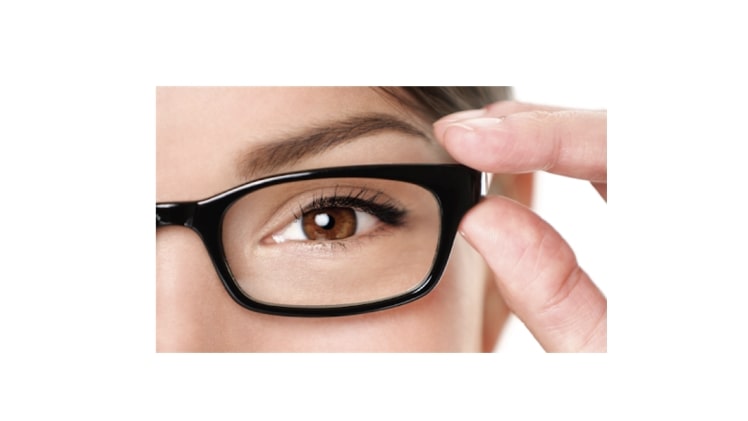
Should You Wear Spectacles After Getting Lasik Surgery
LASIK surgery has a high success charge in helping humans reduce their dependence on the usage of glasses or corrective lenses for the day. LASIK has been scientifically evolved to significantly improve vision for those suffering from situations like myopia, hyperopia, and astigmatism. While LASIK can substantially lessen the use of glasses or touch lenses for the day, it does now no longer declare to get rid of the want entirely. Everyone responds to the surgery barely in another way. Depending on the age and different vision situations, glasses can also be wanted after LASIK, especially for reading.
Should we wear glasses after LASIK?
LASIK is a laser-assisted surgery that corrects refractive mistakes by reshaping the eye’s cornea. Refractive errors include nearsightedness (myopia), farsightedness (hyperopia), and astigmatism. When the lens is distorted, mild can be refracted in another way onto the retina so that images can be processed incorrectly in the brain. You can also additionally have a problem seeing distances, or you can have a problem specializing in near objects. LASIK uses a focused laser to reshape the cornea, allowing clean images to be refracted onto the retina.
The LASIK manner is a brief outpatient surgery, and you also need to experience improvements in your vision within some hours upon getting home. You will no longer be capable of driving yourself domestically immediately after the manner. However, you’ll be able to go yourself on your follow-up appointment the subsequent day. You may receive medicated eye drops used to prevent infection, and a mask protecting your eyes from being bumped or scratched at night. However, it would help if you could go back to most normal activities.
What to Expect After LASIK?
There are a few stuff you must not do after LASIK surgery (refer here: VISUALAIDSCENTRE), like high-effect sports activities or swimming. You may also be asked to keep away from make-up and facial creams for numerous weeks, as they will worsen your eyes. Your vision may also range for 3 to 6 months after the procedure. You may also see halos or glares around lights, experience dry eyes, and feature problems using at night.
Although your vision can be significantly progressed through LASIK, you could now no longer get the best 20/20 vision. While a few humans achieve this after LASIK, many achieve 20/30 or 20/forty vision — sufficient to peer distance matters and carry out up-near tasks. However, you could discover which you still need or want vision correction in a few instances.
Partly, your visible acuity will rely upon how properly your vision became earlier than surgery. The much more minor reshaping of the cornea, the simpler it’ll be, which will achieve a clear vision. If your vision keeps fluctuating for six months or much less, you could discover which you want to maintain glasses with you. However, you could not want or need touch lenses. Immediately after your procedure, you must not place touch lenses on your eyes because your cornea remains healing.
But what occurs in case your vision isn’t clean sufficient after LASIK, and you continue to want corrective put on? You can put on glasses or touch lenses after LASIK, and in case your vision continues to change as your refractive mistakes return or change, you could discover you want them again. Below are a few options once you have LASIK.
Glasses are an easy solution. Typically, ninety-five percent of patients get 20/forty vision after LASIK surgery, and approximately 85 percent attain 20/20 eyesight. If you do now no longer get a clean concept after one LASIK procedure, you can choose a decreased prescription of glasses. This may be a terrific choice for humans who have an ongoing refractive error, like myopia (nearsightedness) or astigmatism, for you to continue to change their vision.
People who’ve presbyopia or pessimistic studying vision due to getting older are more likely to want to study glasses — shortly after their first LASIK procedure. This is due to the fact their eyes are changing because of age. However, you have to be capable of enjoying the majority of everyday activities such as driving, working on the computer, watching television, or taking a walk to enjoy the scenery — without using corrective wear. If this isn’t the case, talk with your ophthalmologist because you can have an under-correction, which calls for one-of-a-kind steps than simply settling for wearing glasses again.
Contacts are more excellent complex after LASIK. If you discover that your vision has now no longer improved within four weeks or one month after your surgery, you can find that you need to go back to touch lenses. Many humans select contacts because they do not need the trouble of glasses, and they selected LASIK to feature more comfort in their everyday lives. Unfortunately, a few docs have located that they have difficulty becoming sufferers of touch lenses after the affected person undergoes LASIK. This is because of changes in the corneal floor after the surgery. The topography of a cornea that has had a flap reduced for the laser, then healed over numerous weeks, is one of a kind to the topography of a cornea that has not undergone any surgery, injury, or illness. For example, in humans with myopia who underwent LASIK so they might see distances again, the corneal floor could have a very flat region with a comparatively steep periphery.
Among those who had hyperopia or presbyopia, the central area may be steeper than the periphery. Traditional smooth touch lenses won’t be an alternative for people who’ve gone through LASIK. Instead, you will be fitted with inflexible fuel online permeable (RGP) lenses, opposite geometry lenses, or other precise ones. This is harder to find and can be greater expensive. Again, if you do not have stepped forward good vision — generally defined as your vision closing worse than 20/40 — you can have had an under correction. Your ophthalmologist will make pointers after diagnosing you with this aspect effect.
If you do now no longer get perfect vision after one LASIK procedure, you aren’t alone. Your ophthalmologist may be capable of manual you via options, from enhancement to different refractive operations. You also can select to still put on glasses for specific activities, like driving at night, that can require extra help.
If you are finding lasik surgery in Noida then check here: https://www.visualaidscentre.com/lasik-surgery-in-noida/.



